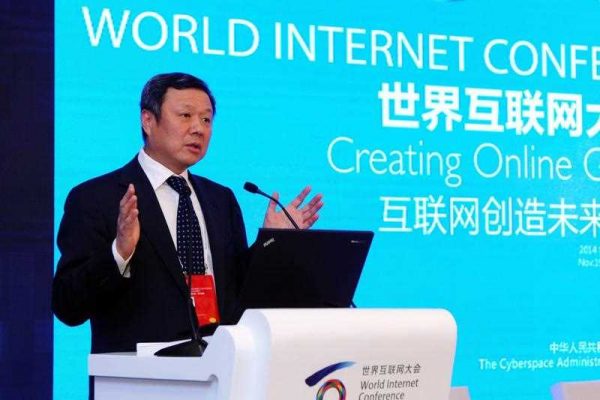‘Informatisation’ is not a common term in English, but as used in China it means the application of advanced information and communications technology to politics, the economy and in the military. Within the economy, it extends well beyond IT products to include the application of information systems in sectors as diverse as health, agriculture, environment and taxation.
China has not lacked leadership in this area of policy. In 1983, Deng Xiaoping set a target for growth of the electronics industry that was double his other wildly ambitious target: quadrupling national GDP by 2000. When Jiang Zemin became General Secretary of the CCP in 1989, he brought with him the experience and passion of his role as the minister of the electronics industry under Deng in 1983. In 1998, as part of a massive reorganisation of government, the incoming premier, Zhu Rongji, set up a new super ministry of Industry and Information Technology. In 2001, Zhu replaced a vice minister as Chair of the Leading Group. Zhu’s successor, Wen Jiabao, in the role as Chair, was an ardent advocate of the informatisation of China, seeing it as a ‘mega-trend for development in world affairs’.
According to the World Economic Forum’s (WEF) 2014 report on the global information technology scene, China is ahead of many advanced economies in terms of its government’s commitment to transformation through informatisation. It ranked 24th in this measure, compared with the United States at 39th, Japan at 28th and South Korea at 26th.
But performance against the ‘transformation intent’ measure is not matched by China’s performance overall in terms of achieving digital competitiveness. In 2014, China was ranked 62nd in the WEF’s Network Readiness Index, having slipped over four years from 36th in the 2011 rankings. China has its own indexes which also give it a relatively low international ranking in the field of informatisation.
It seems there is a conflict between the leaders’ rhetorical commitment and the realities of China’s economy and society. There are many possible explanations for the gulf between ambition and outcomes. In my new book, Cyber Policy in China, I attribute the shortcomings to the divergence between the underlying leadership values and those needed for a country to become an advanced information society.
On the positive side, China’s leaders have made amazing progress, evidenced in their commitment to intellectual property rights reform, promoting the role of venture capital, and recognising the central role of the private sector and university-based research as the main drivers of technological innovation.
But the negatives have been more powerful. As important as universities are to innovation, the CCP has not been prepared to surrender or even lighten the heavy hand of its control over them. This inhibits an environment which would promote a flowering of innovation on the required scale.
One fundamental part of that environment is freedom of information. At its most basic level, an advanced information society depends on the free flow of information and scientific data. This is an inherent characteristic independent of the political system. Yet China’s leaders of the last decade have been unable or unwilling to convert earlier interest in freedom of information into a reality. In 1984, Deng Xiaoping observed that China needed to develop its information resources because its government and scientists did not even have basic statistical data about their own country.
While much has changed in this respect, most government information in China on some of the most important social, economic, environmental and scientific issues remains a state secret. This is not about the structure of the political system. This is about a defining reality of the digital revolution: it depends inherently on free flow of factual information. China must reach more aggressively for that.
Greg Austin is Professorial Fellow at the EastWest Institute and a Visiting Professor at UNSW (ADFA).

